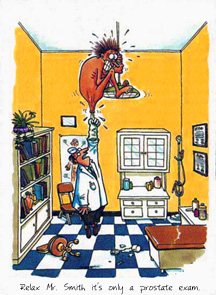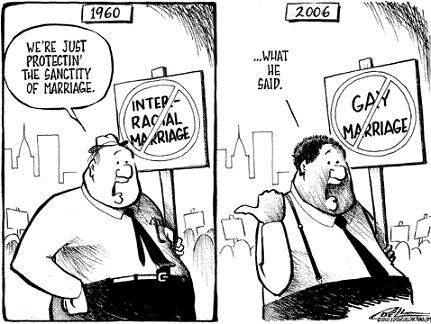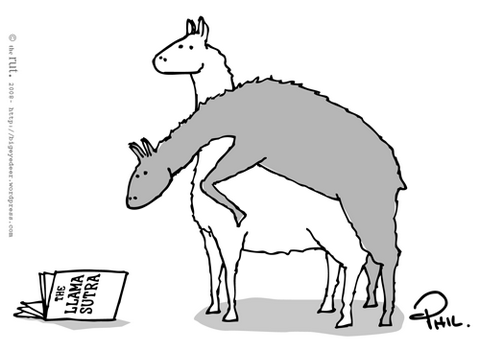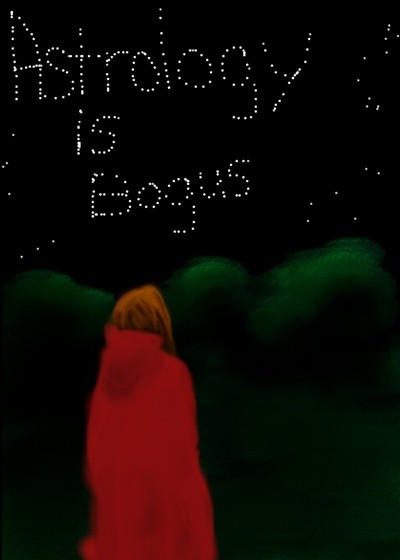These quotes are just a few of the typical statements made by debunkers against astrology, printed every day in newspapers, magazines and books; voiced on the radio, the Internet, and in the classroom. Despite the widespread prejudice against astrology, most of us continue to practice our "forbidden" art. Within our own little community, isolated from the war being waged against us and our discipline by scientists, the media, and religious fundamentalists, we are content to mind our own business and preach to the choir. So long as we maintain our client-based profession or write articles for our limited audience, why should we be concerned about the relentless debunking of astrology that goes on in the real and much larger world?
Because, well, it's not founded in reality. It costs millions of dollars of hard-earned human labor, and for what? Pseudo-psychoanalysis, that' s what.
The surprising answer is that it will make us better astrologers. Astrologers can profit from a critical view. It is valuable for us to understand the objections made by debunkers because they raise important questions that we should ask about ourselves, our practice, and astrology itself.
This is actually a valid point.
First, we must distinguish debunkers from the other types of critics and opponents of astrology. Debunkers are not the historians and philosophers of science who are open to considering astrology as an alternative paradigm and recognize its importance in past cultures, but who believe it has since deteriorated.[5] Debunkers are also different from the revisionists, who were discussed in a previous issue of TMA.6 Religious fundamentalists are another special category which will not be discussed here. It should be noted, however, that despite the general lack of intelligence in their weak arguments, fundamentalists constitute a growing threat to astrology.[7]
Can't help but chuckle at that last sentence.
True debunkers are the diehard skeptics who claim to be scientists using rational arguments, asserting their authority in areas where they have little knowledge. If we carefully examine the debunkers' arguments, we find serious flaws in their "logic" which is ostensibly based on an "objectivity" which is supposed to be characteristic of science and the rational mind.[8] We find that their criticisms are based on misinformation and ignorance. Observing these flaws can lead us to a better understanding of both what is science and what is astrology.
Ah yes, the flawed logic of the 192 scientists who signed the famous Objections to Astrology?
In today's world, science is upheld as the primary measuring rod, and any claim can be falsified or verified according to scientific criteria. According to this rather limited system of analysis, literally anything can be defined as either science or non-science. In most situations, unscientific claims are considered benign and are ignored (debunkers do not bother to "disprove" or "refute" music or the art of parenting, which are clearly non-scientific endeavors practiced daily throughout the world). So long as everybody minds their own business (i.e., scientists attend to science, musicians play their music, parents raise their children), there can be peaceful coexistence between the "two cultures."[10] But in certain cases, debunkers feel compelled to define a non-scientific endeavor such as astrology as "pseudoscience," a special category of non-science that carries the connotation of false, evil, and threatening to the goals of science.
A 'rather limited system of analysis' that has a far better track record than astrology itself. Note the conflation of 'parenting' and 'music', as if there are parallels here. Music is real, parenting is as well.
Just exactly how one is supposed to distinguish between what constitutes science, benign non-science, or pseudoscience is a very debatable topic.
Ah, no it's not.
Philosophers and social scientists have been arguing about this for at least fifty years, and the only consensus they really have is that "science is what scientists say it is." Yet debunkers have decided they can determine not only what is science and what isn't, but also what portions of non-science deserve to be attacked as pseudoscience.
Testable, falsifiable hypotheses? Claiming to be science when it meets none of the criteria? No, the only debate is whether or not we should allow these people a valid opinion without anything to back it up.
What are some of their methods of attack? (1) One is the "Let Them Eat Cake" argument, and it goes like this: Astrology is criticized for failing to design research and run controlled tests to supply evidence for its concepts.
There ya go. Pseudoscience. Argument settled.
But ever since scientists threw astrology out of the Academy in the 17th century, astrologers have been outside the intellectual mainstream with no access to academic funding.
Oh please. There's PLENTY of literature on the subject - centuries worth. It's just a matter of whether it's Western or Eastern, or Middle-Eastern. This is what - the third century or so that it's been banned? Why hasn't some intrepid researched proven it anyways?
Research is an extremely time-consuming and expensive endeavor. If academic scientists didn't have corporate-supported funding and posh jobs (complete with tenure, sabbaticals, grad students to teach their classes, and all the rats or Macs they need to run their experiments), how many do you think would dip into their own pockets to finance the research that "justifies" their existence? Yet they demand that astrologers should somehow find the time and money required to prove the validity of astrology.
Uh, academia in the US is infamous for lack of funding. Jobs and Gates started in their own garages, why can't you?
The catch-22 here is that even if you manage to get inside the academic establishment, astrology is generally considered a taboo subject for investigation, so who is supposed to be doing all the research demanded by the debunkers?
Howzabout all you star-stricken martyrs?
Meanwhile, however, there is plenty of funding available for studying such matters as how goldfish behave under the influence of alcohol, or the effects of gravity on toilet paper.[11]
Or the reconciliation of quantum mechanics as opposed to the scalar laws of weak and strong nuclear forces, magnetism, gravity, etc? Note the lack of citations. Strawman.
(2) The "Pot Calling the Kettle Black" argument: Astrologers are also criticized for doing precisely the same things that scientists do.
My only response is that of hilarity.
Debunkers claim that astrology is invalid because there is disagreement among astrologers over basic ideas such as which celestial configurations are relevant and how these are to be interpreted.
Duh, yeah, you have one thousand and one ways to interpret how one star in the sky impacts the individual, you have no standardization, no boilerplate, and no damn way to prove this is relevant.
Whereas, in science, a lack of mutual agreement over very basic premises is considered a healthy expression of intellectual debate and is called different "schools of thought."
Note the distinct lack of applicable analogies.
Astrologers using geocentric or sidereal or Koch house systems are accused of inconsistency, while in physics, one can discuss whether light is a wave or light is a particle; and in behavioral genetics, one can formulate competing theories like "nature-versus-nurture," and in medical science, doctors can make a respectable income by giving second opinions.
Because light can be both, that's a false dichotomy - and if you're using a geocentric system in anything, well, it's about time that person got wind that they're in the 21st century.
Another way that Scientist debunkers project their own behavior is by accusing astrologers of using their art to control their clients' lives.
Stupidly broad generalization.
You can see how absurd this is if you try to think of some part of modern life that is not depedent on (controlled by) science/technology. Contrast this with humanistic astrology, which is devoted to the process of self-awareness. Science searches for order with the ultimate goal of dominating nature, while astrology searches for an order that connects man with nature. In this sense, astrology constitutes a much more environmentally-friendly discipline than science.
Really? Which scientists? Is this author drawing on some crazy Doctor Cyclops imagery or what? Dominating nature? Would that be the physicists, or the molecular biologists?
And speaking of mythologies, another method of attack is based on the (3) "Myth of Objective Consciousness."[12] This is the idea that the scientific method or rationalism is the best way to gain knowledge about the world.
Because it shows patterns, it has a proven track record, and the supernatural fails the tests every time.
There are just a few assumptions going on here. Debunkers have extended the meaning of best to indicate "only" and knowledge has been equated with Truth.
More strawman crap.
The world is limited by scientific definition to mean the material, physical world, which in turn is assumed to mean "reality."
More new age nonsense.
Astrology functions in a much broader way like philosophy; it is an alternative form of perception that seeks knowledge of a reality that includes the metaphysical world, yet scientists insist on testing it with the scientific method. Analyzing astrology with the tools of science is as inappropriate as trying to measure consciousness with a spoon.
So, what? We're supposed to take her word for it? Or the one hundred thousand other starry-eyed savants who can't seem to agree on one thing?
Skipping a little bit:
Another reason the scientific method will not work with astrology is that the rationalist view assumes that the whole equals the sum of the parts.
Only if you're Michael Behe.
When the scientist tries to break down a person's birth chart into separate components to test the individual parts (like whether sun signs can translate directly into specific, isolated, predictable behavior traits), the astrologer rightfully objects that this is ignoring the wholeness of a chart, and of the person. If psychology is allowed to acknowledge the complex unity of the Self, why can't astrology be granted the same right?
Because you've pretty much admitted that this is not a science, for one thing. For another, if you divide an abstract concept into pieces, and all the pieces disappear, what's the final verdict?
Scientists also insist on statistical analysis using random samples. But astrology cannot be "proven" or falsified by random statistics because astrology is based on the premise that conditions are never random. Take, for example, random conditions at the time of testing. Scientists might assume that any old time is just as good as another to perform a test of astrology, but what if you're testing whether Pisces is less aggressive than Aries and it so happens that Mars is rising during the time of the test? Or suppose that a certain test is performed that shows some validity to astrology, but in a later attempt at replication, the Moon is void-of-course during the test, or Neptune is rising, and the results are all vague.
Because randomnicity is a way of testing for repeating patterns. For structure. Because when a pattern repeats itself, it's no longer random.
But enough. Vaughan cites 10 points, all of which suffer in the morass of subjective bias. Further investigation shows that she uses astrology as three different revenue streams, therefore staining her protestations with observer bias.
Till the next post, then.


















